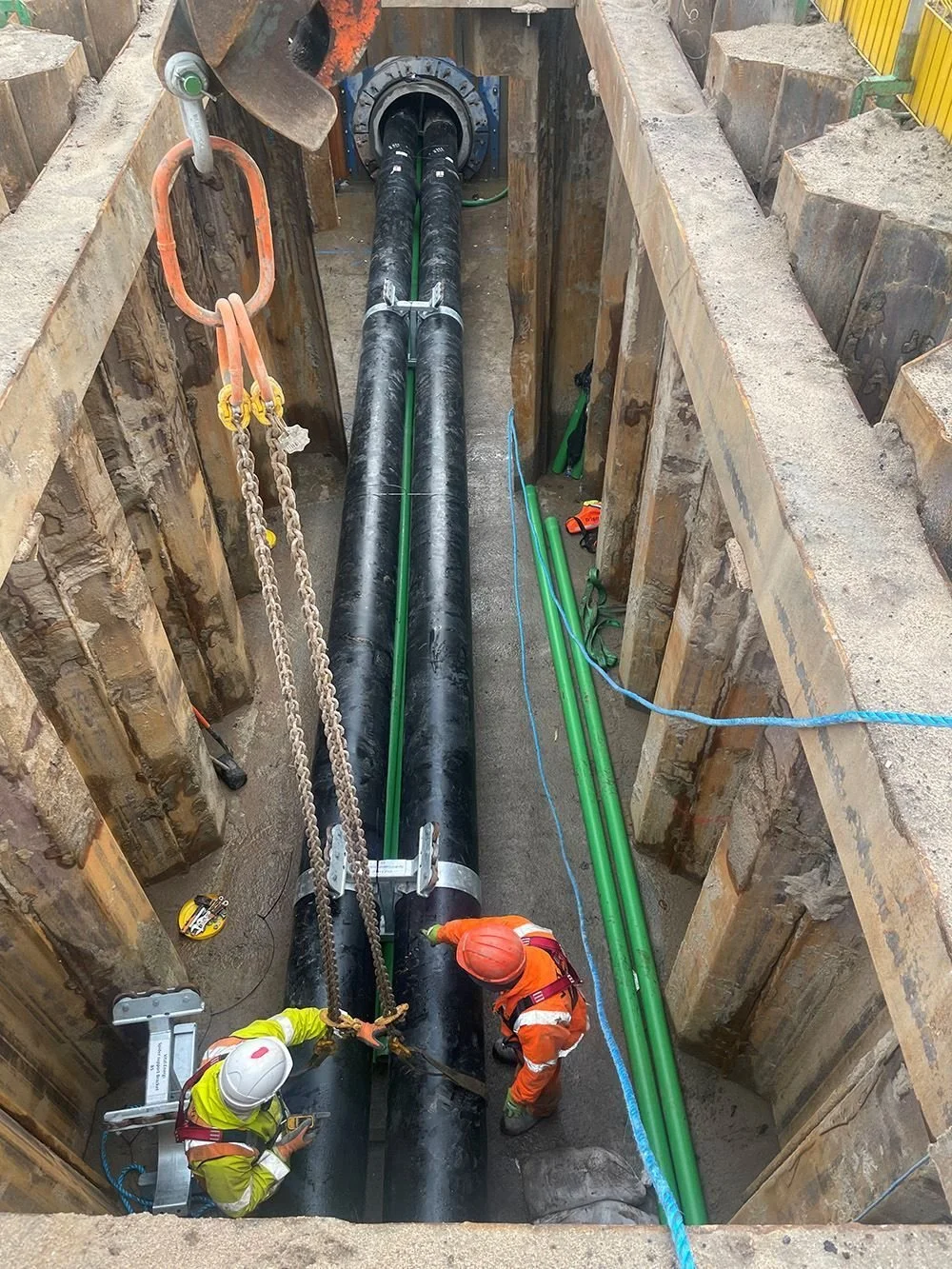Retrofit Accelerator Award: Vital Energi and the Torry Heat Network
The Torry Heat Network in Aberdeen is a landmark project that demonstrates how retrofit heat networks can deliver both climate and social impact.
Delivered by Vital Energi in partnership with Aberdeen City Council, the scheme connects hundreds of homes to a low carbon, affordable heat source. It also supplies heat to several public buildings, including schools and council offices, through a network powered by energy recovered from a nearby Energy from Waste (EfW) facility.
By providing reliable, stable heating costs, the project addresses fuel poverty amongst the local community while reducing carbon emissions associated typically with heat sources. This dual impact made the Torry Heat Network stand out to judges as the winner of the Retrofit Accelerator Award, recognising its ability to scale and replicate across Scotland’s cities.
Engineering scale with speed
At over 11.6 km in length, the Torry Heat Network features one of the largest and most quickly installed underground pipe systems for low-carbon heat in Scotland. The network distributes up to 10 MW of low-carbon heat, and work is ongoing to connect a further 650 homes by spring 2026. As connections are made to the Torry Heat Network the existing gas supply to these homes will be permanently removed, delivering further carbon savings and embedding the transition away from fossil fuel powered heat sources.
Decarbonising through retrofit
This project is not just about installing a new heat source infrastructure; it involves a deep retrofit of the energy system for an entire neighbourhood. The use of waste heat from the EfW plant exemplifies how underused energy resources can be harnessed to power homes and public buildings, reducing overall emissions and improving energy resilience. Over the network’s anticipated 40-year lifespan, it is expected to avoid approximately 107,000 tonnes of carbon emissions.
Importantly, the network proves that retrofit does not have to mean compromise. The approach taken in Torry has proven that traditional building types, often considered complex or expensive to decarbonise can be served with low-carbon heat. Despite the challenges of retrofitting an existing urban area, the project also moved from planning to delivery within three years.
Addressing inequality through decarbonisation
Torry is one of the most economically disadvantaged areas in Aberdeen. By targeting retrofit investment here, the project has ensured that the benefits of decarbonisation are felt where they’re needed most. The delivery of low-carbon heat at more stable and predictable costs through a heat network helps reduce the pressure on household finances while also improving the thermal comfort and quality of life for residents, many of whom live in social housing.
This alignment between climate action and social value makes the Torry Heat Network a model of the just energy transition. The project demonstrates how local authorities can lead the way in delivering climate justice through retrofit.
Unlocking a scalable solution for Scotland
The Retrofit Accelerator Award recognised the Torry Heat Network not only for what it has delivered locally, but for the blueprint it creates for cities across Scotland and the UK to replicate. Its success shows that large-scale, retrofit and heat networks can be delivered in existing urban environments at pace, something which is often considered difficult or prohibitively expensive.
Scotland has significant untapped potential in EfW heat. With over 1.1 million tonnes of municipal waste already processed in existing plants, and more capacity in development, the opportunity to replicate the Torry model is clear.
A national model with local roots
Backed by the Scottish Government through the Low Carbon Infrastructure Transition Programme and Scotland’s Heat Network Fund, the Torry Heat Network underwent rigorous due diligence to demonstrate its long-term value.
By absorbing smaller schemes into a larger, cohesive network and demonstrating the conversion of traditional heat sources to a low-carbon supply, it shows what’s possible when retrofit is treated as a system-wide opportunity.
The Torry Heat Network stands as a model for the kind of ambitious, practical, and socially grounded retrofit needed to meet Scotland’s climate targets. It connects people, places, and infrastructure into a shared low-carbon future and proves that retrofit, done well, is not just a technical challenge, but a powerful tool for social transformation and community benefit.

